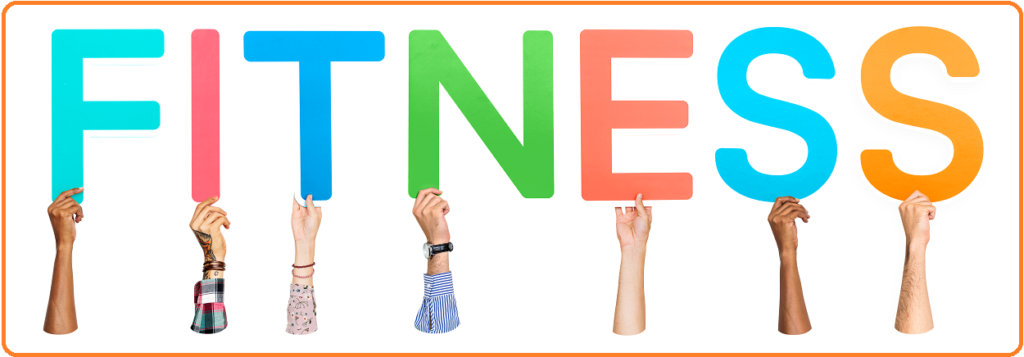Tagged: “forgiveness journey”
What Are the Implications for Forgiveness if We Take the Materialist Perspective that Free Will Does Not Exist?
Nine years ago, I was asked this same question. It is starting to arise again as people consider the materialist philosophy that circumstances and issues other than free will choices determine how people behave. I introduce my answer from 2014 here and add to it. The conclusion remains: Free will is necessary if we are to understand right and wrong and even if we are to understand forgiveness.

(Image by Pexels.com)
We are all connected and so one person’s actions are not necessarily independent from others’ actions. Is this true? Some Eastern philosophies say this. Some Western psychologies say this, too. For example, family systems theory surmises that a misbehaving child likely is being influenced by pressures within the family generated by others’ behavior both inside and outside that family. Psychodynamic theories in psychology say that an adult’s actions can have causes going back to how this person was treated as a child.
Given all of the interrelated ideas above about our being interrelated in our actions, we can then make at least two moves in explaining people’s behavior: 1) no one can truly help certain actions because of others’ influences over us or 2) we all have free will and choose to act rightly or wrongly even if others’ make it hard to be good.
If we take the first turn on our journey of understanding persons, then we weaken such ideas as “right and wrong,” “justice,” and “forgiveness.” After all, how can we say that one person acted wrongly? if we are all so interconnected, then this person is not acting with any kind of genuine volition. In a certain way, his misbehavior can implicate his father, who can implicate his mother, who can implicate……..On it goes until we all share the blame which weakens the case against the original person and his actions under consideration.
If we take the second turn on our journey of understanding persons, then we strengthen such ideas as “right and wrong,” “justice,” and “forgiveness.” After all, the person, even though pressed in on all sides by others, has choices. One need not, for example, hit another person because of frustration. One’s mother has not so abused this person that she was left with one and only one option. Yes, the mother’s misbehavior (whatever it was) may make it difficult for the daughter to control her temper, but control it to a degree she can.
Free will. Independent choices. Break the laws of morality (you will not take the life of an innocent person, for example), and you do wrong. If the wrong is done to me, I can forgive. If the other does not have free will, then an apparent wrong is just that—-apparent. Do I then forgive a person for a wrong? The conclusion is no longer clear. We will have to redefine forgiveness in this case to retain the use of the word “forgiveness.” Forgiveness becomes a kind of acceptance of all along with their actions, no matter how wrong they might appear to be. We still retain such words as “compassion” and “understanding,” but the word forgiveness itself begins to fade.
If the world ever loses the word forgiveness and its true meaning, we are in very big trouble. Inner unrest and conflict within families and communities may know no end. To retain this vital concept, we must retain the truth of free will for each person.
![]()
Future Forgiveness
Your practicing forgiveness now may pay unexpected dividends for you decades from now. As an example, a person visited me when her husband unexpectedly left her and her two children, whom she now is raising on her own. This is her view of the situation: “I have been practicing forgiveness now for many years under many different circumstances. Forgiveness has become my friend. I know how to forgive my husband. Had I not taken the time over the years to forgive different people, to nurture forgiveness in my heart, I could be in big trouble now, with a big bag of resentment that I could be carrying with me. This will not happen…..because forgiveness is my friend.” Each decision to forgive and each act of forgiveness now may pay great dividends for you and others 20 years from now.
Perseverance is a key. I have found that one of the greatest challenges to growing in forgiveness is a failure to adhere to practicing it as a moral virtue. People become distracted, they focus on new approaches to life, and they let forgiveness fade in them. As an analogy, how often do people take out a new membership in the gym, enthusiastically start a physical fitness regimen, and then slowly give it up? Diversions interfere and a habit of going to the gym never develops.
Developing a love of the forgiveness moral virtue is one way to avoid diversion, of avoiding distraction from the conscious and deliberate commitment to keep forgiveness as a vital part of one’s human interactions. As a person practices forgiveness over time, sees the beauty of it, sees the potential for aiding the self in reducing resentment and aiding others with the second chance, it is here that one starts to develop a love of the virtue. With the love now in place, perseverance becomes easier and it is easier to pass forgiveness to others.

from Pexels, used with permission
A love of the moral virtue of forgiveness can lead to it becoming a part of your identity, a part of who you are as a person. In other words, we all have a sense of who we are by focusing on what is important to us in life. Some may say, “I am a teacher,” or “I am the parent of two beautiful children,” or “I am a bicycle enthusiast.” We tend to look upon ourselves mostly through the lens of what we value. Once forgiveness starts to grow in you, then continued perseverance is more likely. The more you persevere in forgiving, the more you see its beauty and develop a love of the virtue. The more you develop a love of forgiveness, then the more likely it will become a valued part of who you are: “I am a forgiving person.” It is here that you want to give it away to others for their good. You then are helping people strengthen against the potential ravages of deeply unfair treatment from others that can lead to trauma within. Forgiveness is a protection against these negative effects. Persist in practicing forgiveness now, even for the minor annoyances, and protect yourself when deep unfairness comes; persist in practicing forgiveness now, and grow toward helping others to forgive, as a protection for them when deep unfairness visits them.
Forgiveness today is an investment in your future……and in others’ future.
![]()
Does the brain cause people to forgive?
I have addressed this question in a Psychology Today blog here: Does Your Brain Cause You to Forgive?
The short answer is: I do not think so. There can be a confusion of cause and effect. As people willingly practice forgiving, brain structures can alter. In other words, it is not the brain’s existing structure that causes forgiveness but the continual practice of forgiveness that may lead to an alteration of the brain.
The Clash between Modern Western Culture and the Moral Virtue of Forgiveness
When surfing the Internet I sometimes run into ads for quick weight loss. Those ads run something like this: A guy, who may be ramped up on steroids, has his shirt off and he eagerly bites into a high calorie meal. He then says that he has a physical workout regimen that allows him to exercise a few days a week and retain a muscular physique. The exercise routine, for example, consists of about 5 push-ups, 8 sit-ups, some front lunges, a few jumping jacks, and then hit the showers because you are……..done.
In other ads, there are “before” and “after” photos, with the message that pill X will burn excess stomach cells overnight as you sleep…….and then presto! You have a new body.
The messages from these ubiquitous ads are these: Physical fitness is easy. Buy my fitness program or the pills I sell, and you will have gain without the pain.
What makes these ads almost humorous is the contrast between reality and fantasy, between what is needed for physical fitness or weight loss and what is offered. It is as if the striving and effort and perseverance are no longer necessary.

(Image by Rawpixel.com)
Such messages of gain-without-pain now are pervading the Internet for forgiveness. Take a look for yourself on the Internet. As you search for ways to forgive you will be met with advice to forgive, for example, in four easy steps. Learn to forgive in seven easy steps. Take your pick. The advice tends to range from about 2 to 9 sessions of psychological techniques…….and then presto! You have a new outlook on life and toward the one who hurt you.
Now, there is nothing wrong with a few steps to start a physical fitness program, as you get familiar once again with what a push-up is. In a similar way, there is nothing wrong with a few brief psychological techniques to introduce you to what it may be like to forgive those who hurt you deeply.
Yet, if you want true physical fitness, if you want true and deep forgiving, you will need to have the strong and good will to start, the rationality to know what you are facing, then practice, then persevere, then develop a love of the workout (physical or forgiveness workout) so that you grow in maturity toward either kind of workout. Both the achievement of physical fitness and forgiveness fitness require the exercise gym and the forgiveness gym, respectively.
When you are deeply hurt by others, when your heart is hurting, there is no such thing as the forgiveness pill. There is no such thing as the easy way. When others make you suffer from their unjust treatment, the way out is a different kind of suffering, which is growth in the heroic moral virtue of forgiveness. This new suffering is very different from the original suffering from unjust treatment because the forgiveness treatment leads to deep healing so that you can move on well with your life. The suffering from the effects of grave injustice, if you do not address these effects, may never end. The suffering from working on forgiving eventually ends. I want you to see the big difference between the two kinds of suffering. Only one of these offers the challenge of a new start in life as you become forgivingly fit.
Let’s hit the forgiveness gym, when deeply hurt by others, and start becoming forgivingly fit.

My friend and I have a lot of conflicts and yet I do want to reconcile in the hope that these conflicts will be reduced. What would you suggest if such a reconciliation will be kind of rocky yet we both want to try?
I would recommend two points. First, are you both willing to forgive each other first so that you do not bring a lot of anger into dialogue with each other? Second, and if you are willing to forgive each other, what are the small steps each of you can take to help the other feel more trusting? In other words, what have you been doing to damage trust and can you take a small step in a better direction? Is your friend willing to do the same by taking small steps to build up your trust?



